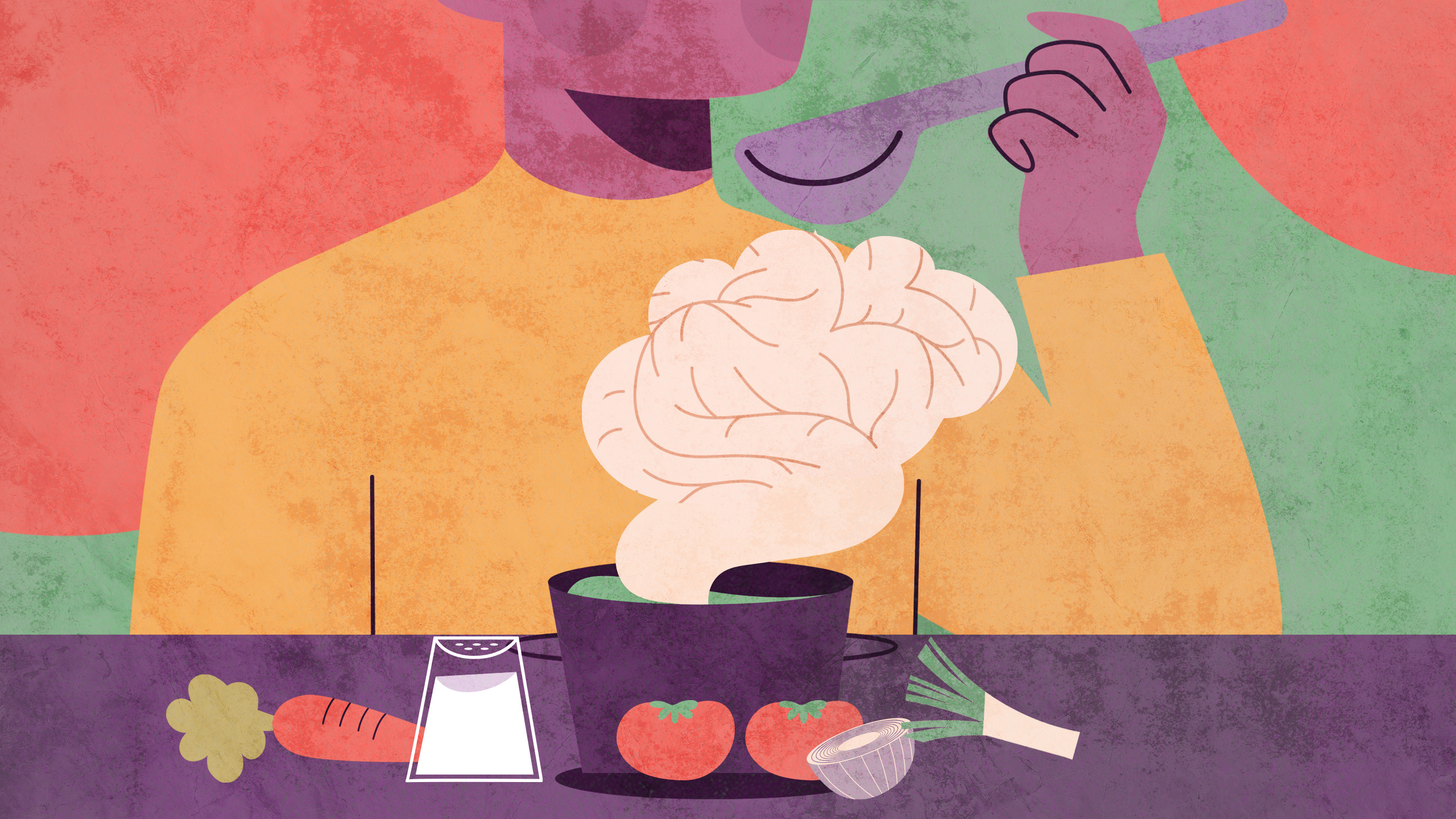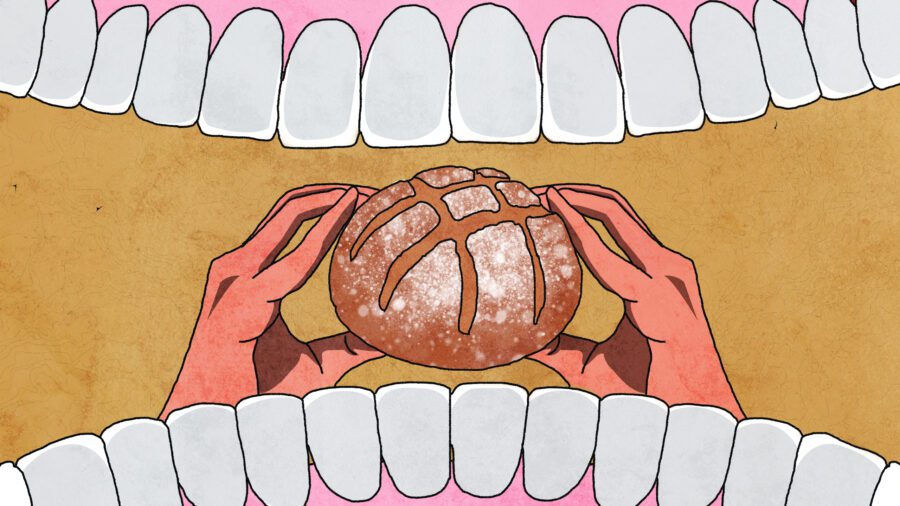
Cooking’s Not Just Good for the Soul: How Making a Meal Can Improve Your Mental Health
What is your go-to activity when you’re feeling down?
Many people opt to listen to their favorite records, others prefer going on a walk outdoors, and some choose to meditate or journal to lift their spirits. These are all fine things to do when you want to improve your mood and take care of your mental health, but they are not the only things.
In recent years, a growing number of healthcare clinics and therapists have begun employing the act of cooking as a technique to assist patients in overcoming a variety of mental health conditions including anxiety, negativity, addiction, ADHD, eating disorders, and depression. Spending some time in the kitchen can be one of the most effective methods to revitalize your disposition at the end of a long day at work. Preparing a meal by chopping and dicing vegetables can be therapeutic for the mind and the spirit.
There’s no question that nourishing our bodies with nutritious food is important, but there is also mounting evidence that the process of cooking nutritious meals for ourselves can also have a favorable effect on our minds. Cooking, according to professionals in the field of mental health, can help ease symptoms of sadness, anxiety, and stress, and it has recently been added to the list of useful ways to relax in this hectic world, joining other activities such as various forms of meditation, yoga, and physical exercise.
If you’ve been curious about trying a new activity to calm down after a long day of working, you’re in luck. In this article, we discuss all the ways in which cooking can help improve your mental health and why you should give it a shot next time you’re looking to improve your mood.
The Science Behind Cooking and Emotional Regulation
Let’s start with the most obvious fact: There is a significant body of data indicating that maintaining a balanced diet is associated with a variety of immediate and long-term health advantages, both physical and mental. In addition, preparing meals at home might be a step toward developing healthy eating behaviors. Although researchers are still learning how to improve one’s emotional well-being through cooking, the studies that have been done on the topic have shown encouraging results.
The participants in a brief qualitative study conducted in 2021 in the Journal Frontiers in Psychology were questioned by researchers regarding their experiences in the kitchen during the COVID-19 lockdowns. They discovered that people felt both happiness and relaxation when they cooked and that developing confidence in the kitchen made them feel more independent overall. Basically, people found enjoyment and relaxation in cooking.
Additionally, you can find a wonderful opportunity to cultivate social ties in the kitchen. Cooking ability was found to be positively associated with better family connections, greater mental well-being, and lower levels of depression in a survey of 8,500 adolescents in New Zealand that was conducted by researchers and published in January 2016 in the Journal of Nutrition Education Behavior. The researchers found that the adolescents’ ability to cook was positively associated with these factors.
A study that was analyzed and published in the peer-reviewed journal Public Health Nutrition discovered that community cooking programs increase socializing and decrease feelings of isolation. A more recent study, which was conducted by academics and published in March 2022 in the journal Frontiers in Nutrition, investigated the effects that a seven-week cooking program had on adult participants.
Participants reported improvements in their overall and mental health, in addition to improvements in their cooking confidence and satisfaction, despite the fact that their nutrient consumption did not significantly vary throughout the course of the study.
A diet that is beneficial to the brain can be supported by cooking.
Cooking Can Promote a Brain-Boosting Diet
Amazingly, certain foods can actually improve cognitive performance, according to a study from 2014 that showed a correlation between bad diets and poor mental health. On the other hand, eating a healthy, well-balanced diet that is free of processed foods can have a beneficial effect on your memory and promote healthy neurotransmitter activity.
The Mediterranean diet is one type of eating plan that can improve these mental health benefits. This eating plan emphasizes the consumption of healthy fats such as olive oil as well as a large number of fruits and vegetables, whole grains, fish, and very little red meat.
It is necessary to recognize that the term “bad diet” can be rife with considerable stigma, and it frequently denies the causes that lead to unhealthy food choices, such as a lack of access and poverty. If you discover that it is difficult for you to obtain fresh, unprocessed foods, you might want to investigate the Community Supported Agriculture programs offered in your area (CSA). This service provides a weekly delivery of fresh fruits and vegetables at prices that are frequently lower than those found at farmer’s markets and grocery stores.
In addition, some organizations help community members who are going through tough financial times by providing them with discounted fruit and vegetable boxes. Contact them and ask about the various help alternatives that are available to you.
Cooking Can Increase Social Connection
How frequently does a recipe just produce enough food for one serving? Not very often. Food was meant to be shared, and the act of cooking provides a natural opportunity to bring people together. It might be as easy as going to your local farmer’s market and asking some of the stallholders there for advice on what recipes to try next.
You may recruit a friend to experiment in the kitchen with you or ask some loved ones over to break bread with you. No matter what you decide to eat, there are a lot of different ways to engage in conversation with other people about food or during a meal.
Recent studies have provided empirical support for the socialization benefits associated with cooking. Cooking is a terrific intervention that may be utilized in therapeutic and rehabilitation settings, according to a study that came out in 2017 and was published in the Health Education & Behavior Journal. Check out some tutorials on YouTube if you’re unsure how to get started.
Join In 200 Million+ On The Journey to Greatness
Cooking Boosts Self-Esteem
It is not unusual for how we feel about ourselves to worsen when our mental health is in poor shape. If we entertain the notion that our brain isn’t operating properly, it’s common for that notion to snowball into the belief that we are unable to perform any task correctly or that we are generally worthless.
Your sense of accomplishment might be substantially boosted when you finally master a recipe that you’ve been working on for a long time. Cooking, even if it’s only something as basic as a three-ingredient pasta dish, has been shown in clinical studies to be a substantial confidence booster. This is due to the fact that the experience of making something real that other people can use and appreciate may be immensely satisfying.
Cooking Can Help You Develop a Routine
Because of the positive effects that routine has on our brains, one form of psychotherapy has been developed around the concept of routine. Interpersonal and social rhythm therapy, more often known by its acronym IPSRT, is a type of psychotherapy that is most frequently utilized with people who suffer from bipolar disorder.
This therapy emphasizes how stressful life events and disruptions in one’s daily routine can provoke mental health difficulties. For example, in the case of bipolar disorder, this therapy can contribute to the development of a depressed or manic episode. People who participate in this form of therapy are given the assignment to plan out their daily routines, including the times at which they eat, get out of bed, and go to sleep. By sticking to a schedule, we can train our circadian rhythms to become more stable.
Cortisol, which is a stress hormone, and melatonin, which is the hormone that controls our sleep-wake cycle, are both regulated by the circadian rhythm — the internal clock of our bodies. Cooking has the potential to become an integral part of your routine, which will ultimately lead to an improvement in your general health.
Relieves Stress
Cooking can help cleanse one’s mind and relax one’s body, making it an excellent stress reliever. It can become a form of meditation if you focus on certain actions in the kitchen, such as slicing vegetables or stirring sauces. It’s recommended that you are fully present in the activity, engaged in the physical activity, and not thinking about the other things you need to get done today. It not only nourishes you physically but also helps revitalize your spirit.
Brings Joy
It’s tempting to think of cooking as just another chore around the house, and it certainly can be, but it also has the potential to bring you a level of joy that you won’t find in other, more routine activities. The act of cooking can provide a sense of accomplishment, as you are free to improve it in any way you see fit. While you are preparing food, you could even listen to some music. After all, you have a tendency to forget all of your troubles while you are doing something enjoyable, like working in the kitchen while listening to music you adore.
Cooking Can Boost Creativity
According to a recent study, engaging in creative pursuits on a regular basis can greatly improve both one’s mood and one’s general sense of well-being. In yet another piece of research, the act of cooking is classified as a creative pursuit, and the researchers even go so far as to highlight the correlations between cooking and improved mood. The evidence suggests that putting on your apron as a chef and boldly experimenting in the kitchen can result in you feeling better than you have in a very long time.
Tips on Getting Started
Getting started is a whole other beast entirely because many aspects of home cooking end up being far more complicated than you initially think.
Begin with the Basics
You can start reaping the benefits of this practice with something as easy as preparing something for yourself to eat. If you’ve never been able to make anything delicious in the kitchen before but you decide to give it a shot and it works out, that accomplishment alone might be beneficial to your sense of self-worth and self-esteem.
Be Mindful
Incorporating mindfulness into your routine while you’re in the kitchen might also be beneficial. Mise en place is a French term that defines the way in which chefs prepare and lay out all of their ingredients and equipment prior to cooking in order to make the process more fluid. Practicing this at home can be a form of meditation and bring a higher level of awareness to the act of preparing food.
Make It a Social Occasion
In addition, if you want to gain the social benefits of cooking, invite other people to cook with you or just to eat the food that you prepare. It may be a wonderful way to bond, and even sharing cultural food customs that bring people together can make you feel even more connected. Don’t be hesitant to enter the kitchen. Once you begin, you will not only be able to fulfill one of your fundamental requirements (Nourishment is essential, after all!), but you will also be boosting your mental and emotional health in a number of other ways.
Great Food, Great Mood
Whether you’re a seasoned veteran in the kitchen or a grilled cheese is your peak culinary achievement, it takes a bit of reshaping the way you think about the activity to reap all of its benefits. Cooking at home is an excellent way to ensure that you’re eating a healthy diet while also keeping your mood and mental health in check. Now that you understand all of the ways in which cooking can improve your life, it’s up to you to take the first step!
Greatness Authors
Greatness Authors is a collection of writers, thinkers, curiosity experts, and students of the world who are committed to bringing you the most up-to-date, impactful, and inspiring information surrounding Greatness topics.

Do You Have to Be a Morning Person to Be Successful? Here’s What Both Sides Have to Say

9 Reasons You’re Tired All the Time & How to 10x Your Energy

How to Have a Healthy Romantic Relationship Even if You Share Different Beliefs

The 7 Best Vitamins to Naturally Promote Better, Uninterrupted Sleep According to Shawn Stevenson

The Science of Forming Healthy Habits & Letting Go of Bad Ones, According to Author James Clear










